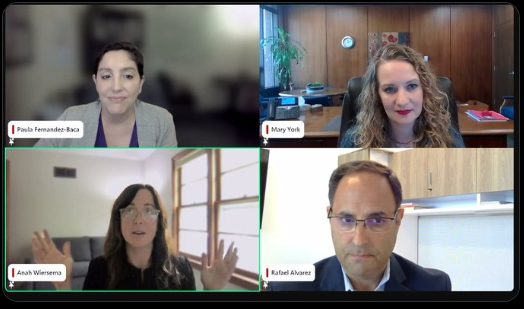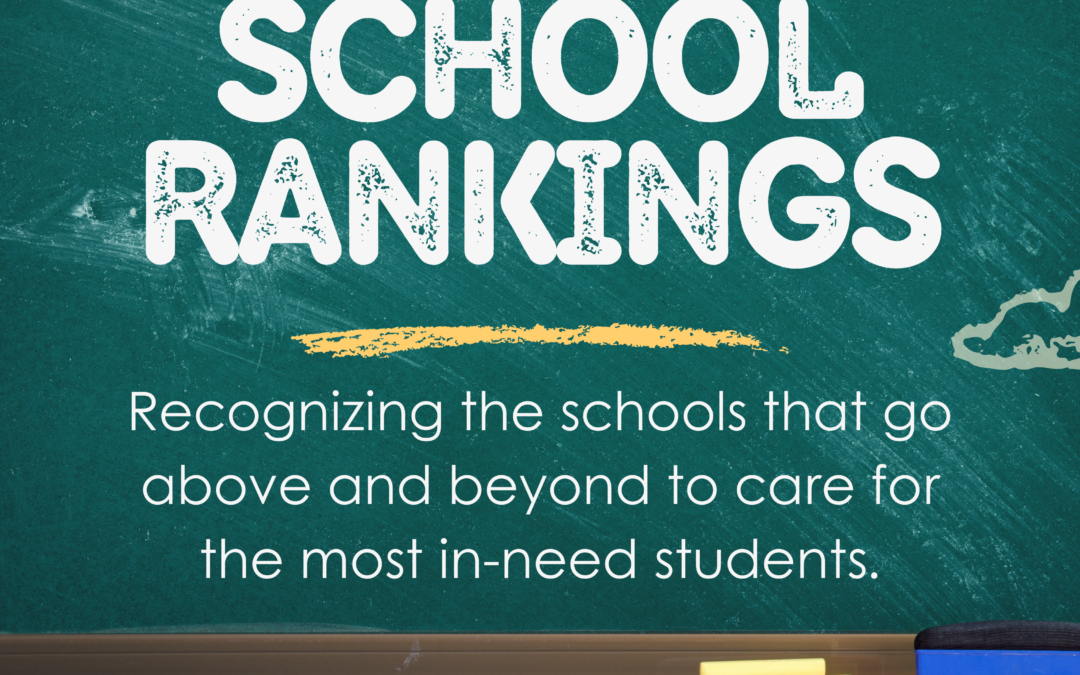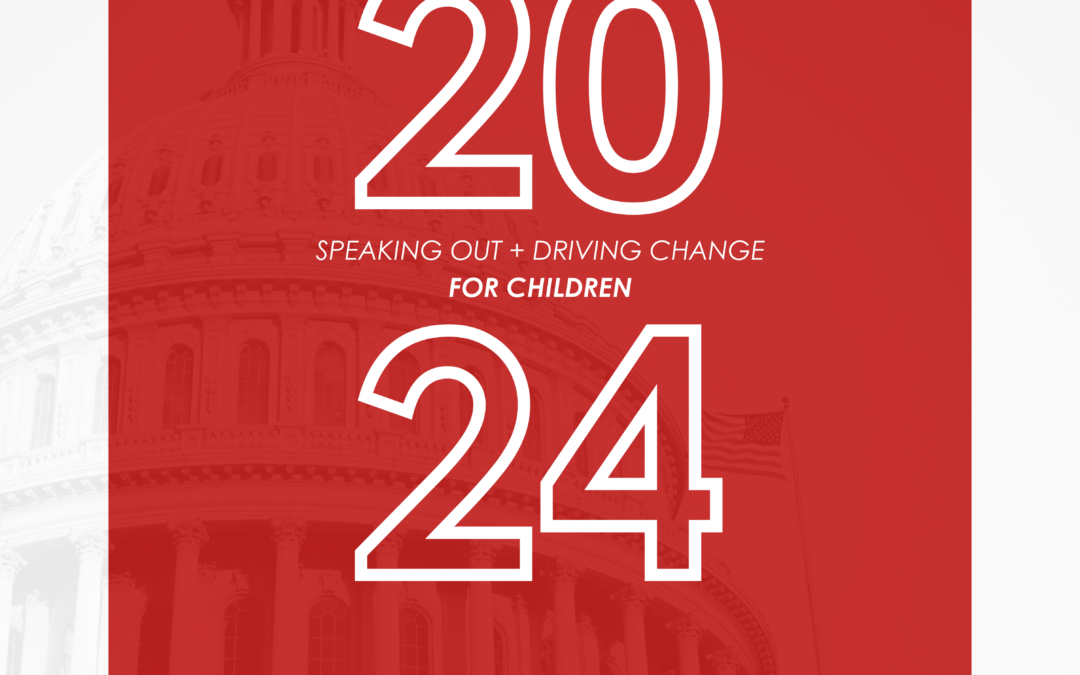
The Chutes & Ladders of Learning: C@R's Annual Education Summit Recap
On Friday, June 6, CHILDREN AT RISK hosted the 2025 Education Summit: The Chutes and Ladders of Learning, bringing together educators, leaders, and advocates to examine the opportunities and challenges shaping Texas education.
On Friday, June 6, CHILDREN AT RISK hosted the 2025 Education Summit: The Chutes and Ladders of Learning, bringing together educators, leaders, and advocates to examine the opportunities and challenges shaping Texas education. Generously sponsored by Shell and supported by H-E-B, the summit explored Texas’ evolving educational landscape through expert panels on literacy, mathematics achievement, and the critical link between education and career success.
This summit was moderated by Diana Del Pilar, Chief of Academic Performance at CHILDREN AT RISK, who drew on her deep expertise in education and coaching to guide the conversation and highlight key insights from guest experts. To open the conversation, Dr. Bob Sanborn, President & CEO of CHILDREN AT RISK, offered opening remarks that connected both to the subject matter of the event, as well as the press conference directly preceding the event which focused on policy opportunities at the close of the 89th Texas Legislature.
Dr. Erin Baumgartner, Director of the Houston Education Research Consortium at Rice University’s Kinder Institute for Urban Research, opened the summit with a data-driven keynote that provided a clear snapshot of Texas’ educational landscape. She examined demographic shifts, student achievement trends, and resource allocation, emphasizing the importance of early childhood education, the needs of 1.3 million emergent bilingual students, and postsecondary readiness.
“Around 80% of school districts are in rural style areas. What students need in urban centers vs rural areas can vary, a lot,” said Dr. Baumgartner. “Just as the composition of the state is changing over time, so is the composition of our students.”


Next, the conversation moved into a panel discussion on what it takes to help students “Climb the Literacy Ladder,” moderated by Dr. Susan Lambert, Chief Academic Officer, Elementary Humanities, Amplify. This panel explored key challenges and opportunities within Texas literacy education. Leaning into evidence-based strategies, expert guests explored what it would take to close achievement gaps and build strong, inclusive literacy programs that support all students.

“What if Texas became the most literate state in the country? It would transform everything,” said Dr. Delilah Gonzales, Executive Director, Emerging Learners Literacy Foundation, National Literacy Institute; Curriculum Developer/Trainer, and Texas Southern University Professor of Early Childhood Education.
“Our children need to be critical thinkers with character. AI, if used precisely and intentionally, is important. But we need to make sure our students don’t forget to think. We need to put boundaries around that tool,” said Dr. Tracey Weeden, Past President and Ambassador, Neuhaus Education Center.
“We are great at talking about high standards, but when working with children at risk, we need to remember Maslow’s hierarchy. If a student is hungry or scared, they can’t think,” Dr. Jenny McCormack Walker, Executive Director, Literacy Texas, said. She emphasized how urgent it is to ensure students’ basic needs are met.


Following this robust conversation, summit attendees heard directly from an education leader himself in a pre-recorded interview featuring Mike Morath, Commissioner of Education with the Texas Education Agency (TEA). In this, he explored themes of high standards, academic excellence, and tailoring academic supports for all students with Dr. Bob Sanborn, President & CEO, CHILDREN AT RISK.
“There is really nothing more difficult than the job of educating not just one at a time, but 20 or 100 at a time. Nothing about this work is simple,” Commissioner Morath said.
He took time to talk about how not every student receives the same learning support or opportunities when not in the classroom, and that some students do need more rigorous support to stay on track with their peers. “Is content being taught in a way that grows [students] from a resiliency standpoint as well as a mastery standpoint?” Morath said.
Taking it back to a lived experience, the summit then transitioned to the second panel discussion of the day moderated by Jennifer Mascheck, Director of Academic Performance Coaches, Instructional and Leadership; Texas A+ Challenge. Featuring national expertise, “Calculating the Climb” focused on what it would take to build strong foundations and expand opportunities for students to pursue to advanced coursework.
Exploring the socialization impact on academic math accomplishments, expert panelists took a moment to acknowledge that every child is born with an innate sense of numbers. “Children are born with an innate sense of quantity – they know when they got something less or smaller than something else,” said Brandi Simpson, President, Texas Association of Supervisors of Mathematics; Lecturer, UTSA. She emphasized that modeling should be used as a method for students to move beyond procedures and see math instead as a tool for interacting in the world.
“I feel that math is the only content area where someone can say “I’m not good at math” – We have to change that marketing strategy. That content area is used and manipulated throughout every action, all the time,” said Latrenda Knighten, President, The National Council of Teachers of Mathematics.
“In my field of early childhood education, it wasn’t the students who carried the narrative that “I’m bad at math,” it was the teachers.” said Dr. Jie-Qi Chen, Barbara T. Bowman Professor of Early Childhood Education and Founder of the Early Math Collaborative at Erikson Institute, Chicago. “When teachers feel unsure or uncomfortable, they can unintentionally pass on the very narrative we’re trying to disrupt.”


This robust conversation looked at existing challenges while also sharing strategies to enhance engagement, support early talent identification, and ensure equitable pathways from basic math to higher-level opportunities.
Bringing the conversation full circle, the third and last panel of the day connected academic achievement to workforce outcomes. Paula Fernandez-Baca, Executive Director of College & Career Counseling & Advising, “The Winner’s Square,” addressed the vital intersection of academic preparation and workforce readiness in Texas’s evolving economy. Distinguished panelists brought lived experience representing both education and industry perspectives. This discussion focused on developing comprehensive pathways that prepare students for both immediate career entry and continued academic advancement, noting that these largely already exist and merely need to be expanded.
“We’re focusing on what we can do to expand internship opportunities, not only in higher education but in high schools,” said Mary York, Director of Workforce Development, The Texas Workforce Commission. “If we can continue to see success in current models, we have something to bring to the Texas Legislature and say ‘hey, this works.”
“The outcome data of students who go through internship opportunities is off the charts,” said Rafael Alvarez, Senior Vice President of Regional Workforce Development, Greater Houston Partnership, Houston ISD and Founder of Genysis Works. “We need to use AI to harness opportunities for students and connect them with their dream careers, and the pathways to get there.”
Panelists explored innovative approaches to career and technical education, the integration of essential soft skills into academic programs, and the development of sustainable industry-education partnerships. Experts took a moment to acknowledge the changing nature of career readiness, and emphasized the soft skills needed for students to be competitive in a rapidly evolving workforce.
“How we work is fundamentally changing, and it’s changing faster and faster,” said Anah Wiersema, Director of Program Strategy, Texas School Empowerment Network. “You’re not born adaptable; you learn that skill… And that is the biggest skill our students need to learn.”
“No student has ever failed because they don’t have technical skills. They failed because they didn’t have the soft, the durable, skills,” said Alvarez, following Wiserma’s statements. “How do we teach these, and let students experience durable skills in K-12?”
Closing out the event on a powerful note, the panelists agreed that early exposure and opportunities to ‘try out careers’ is critical. They also acknowledged that, sometimes the barriers to success aren’t the lack of opportunities, it’s the lack of awareness of an opportunity available to a student.
Click here to watch the summit recording, or explore the highlights here from C@R’s live posting on X. Keep diving into this information with the press conference on the alignment of legislation, education, and workforce readiness. Continue learning with CHILDREN AT RISK – Register for our next upcoming event, The 89th Legislative Debrief, on July 10th.


Watch the summit recording on Youtube!
READ MORE FROM C@R

C@R Interview Series: Education Leadership Conversations
1:1 Interviews to offer Insights on Texas Public Schools, Student Achievement, and Education Policy Media Contacts: Morgan Gerri, 832.600.9354 Rashena Franklin 713.301.4577 November through December 2025, CHILDREN AT RISK will host a Education Leadership Conversation...

2025 STEM Summit Recap: Connecting Education, Careers, and Communities
Bringing Educators, Experts, and Innovators Together to Strengthen STEM Opportunities for Every Child On November 13, CHILDREN AT RISK, in partnership with the Texas Family Leadership Council, welcomed educators, students, industry leaders, and community partners from...

2024-2025 Houston School Rankings
CHILDREN AT RISK Releases 2024-2025 Annual Houston School Rankings HOUSTON (Monday, November 10, 2025) – For over two decades, CHILDREN AT RISK has released its annual Texas School Rankings to spotlight academic excellence, support family decision-making, and drive...
From Harm to Hope: 2025 National Immigration Summit Highlights Pathways to Protection and Empowerment
The virtual gathering brought together national and state advocates, researchers, and community leaders for a timely conversation about how immigration policies are shaping children’s lives—and how advocacy can drive lasting change. On September 25, CHILDREN AT RISK,...

Seeds of Change: Recap of the 2025 Early Childhood Education Summit
This virtual gathering brought together legislators, policy experts, state leaders, advocates, and community stakeholders to reflect on recent wins for Texas children and chart the course for the work ahead. On August 14th, CHILDREN AT RISK gathered leaders,...
C@R Statement in Response to the Release of TEA’s 2025 Accountability Ratings
Media Contacts: Morgan Gerri, 832.600.9354 Rashena Franklin, 713.301.4577 IMMEDIATE RELEASE August 15, 2025 The 2025 TEA Accountability Ratings show what is possible when improvement is measured and made public. For the first time in years, Houston ISD has no...

Event Recap: 89th Legislative Summit
On July 10th, CHILDREN AT RISK hosted a 89th Legislative Debrief, which consisted of experts, advocates, and policymakers who were at the forefront of legislative discussions, who analyzed the implications of new laws and identify areas where further action is needed....

Press Conference: Education, Legislation, and Workforce Alignment in Texas
Changes to school funding, teacher certification requirements, and public education policy poised to reshape academic recovery and career preparation for Texas students. Media Contacts:Morgan Gerri, 832.600.9354Rashena Franklin, 713.301.4577 HOUSTON, TX (June 6, 2025)...

2024 Annual Report
Dear Friends and Advocates, At CHILDREN AT RISK, we believe that every child deserves a fair shot at success—and we know that it takes all of us to make that happen. Whether you’re a policymaker, educator, donor, volunteer, or advocate, your partnership has helped...

Standing Up for Children in 2025
On March 28, CHILDREN AT RISK hosted the 2025 Stand Up for Children Signature Event featuring Fred Armisen of Saturday Night Live. Over 430 guests joined to support CHILDREN AT RISK’s Stand Up for Children at The Post Oak Hotel on Friday, March 28. Event chairs Suzan...

Press Conference: Changes at U.S. Department of Education Impact Support for Emergent Bilingual Students
Massive layoffs at the U.S. Department of Education are predicted to impact 1.27 million Texas children Media Contacts:Morgan Gerri, 832.600.9354Rashena Franklin, 713.301.4577 TEXAS (March 19, 2025) – In an unprecedented move, the U.S. Department of Education...

Recap: The State of Black Children in Texas 2025
On February 13, 2025, CHILDREN AT RISK presented the virtual learning summit The State of Black Children in Texas. Each year, the State of Black Children in Texas Summit serves as a call to action—a gathering place for experts, advocates, and community leaders...

Advocating in Support of SB 570 & SB 991
Mandi Kimball, Chief Government Affairs Officer with CHILDREN AT RISK, testifies in support of SB 570 & SB 991 during the March 25, 2025 hearing of the Texas Senate Committee on Education K-16. My name is Mandi Kimball, Vice President of Children at Risk, and I am...

Spring 2025 | Early Childhood Education Texas Tour
Each Spring, the CHILDREN AT RISK Early Childhood Education team hosts virtual community roundtables in 12 major cities across Texas. During the roundtables, C@R will share new data and analysis regarding the ECE landscape, including Child Care Deserts, as well as...
